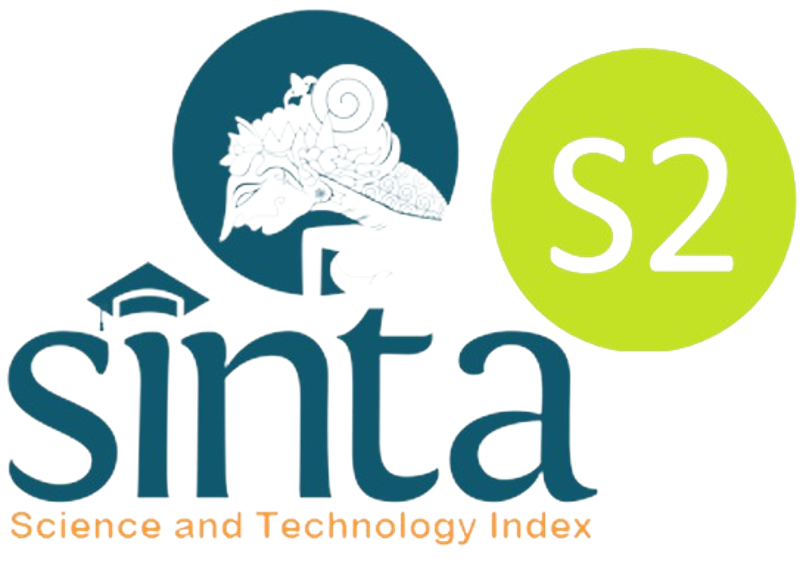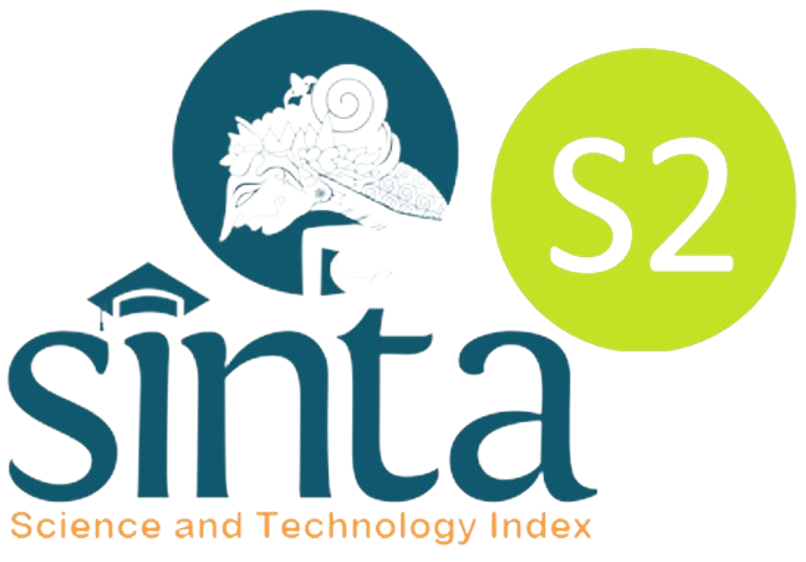Effect of Project-Based Learning and Science Literacy Ability on Critical Thinking Skills in Virtual Learning of the Thermodynamics Course
DOI:
https://doi.org/10.26740/jpps.v12n1.p56-68Keywords:
Critical Thinking Skills, Project-based Learning, Scientific Literacy Ability, Virtual LearningAbstract
Research aims to find the effect of project-based Learning and scientific literacy skills on students' critical thinking skills 20 students in virtual learning of the Thermodynamics class at the Physics Education Study Program. The research design used the three-variable regression technique, which consists of two independent variables, namely project-based Learning (X1), the scientific literacy ability (X2), and the dependent variable, namely critical thinking skills (Y). Data collection techniques include observation sheets, questionnaires with a Likert scale, and evaluation of critical thinking skills. The results of the data analysis show that there is no partial effect of project-based learning on students' critical thinking skills, and the scientific literacy ability variable partially affects the critical thinking skills variable. Project-based Learning and scientific literacy skills significantly affect critical thinking skills. This research implies that there is evidence that Thermodynamics learning is not enough to apply project-based learning but must be equipped with literacy learning because, with a combination of these two things, students' critical thinking skills can increase significantly.
Downloads
References
Ali, M. K., & Maksum, H. (2020). Utilization of e-learning based ICT learning using the google classroom application during the COVID-19 pandemic. Journal of Educational Research and Evaluation, 4(4) 373-380. https://doi.org/10.23887/jere.v4i4.29181
Almahida,. A. D., & Gamaliel, S. A. (2020). Efektivitas model pembelajaran project based learning berbasis STEM dan tidak berbasis STEM terhadap kemampuan berpikir kritis siswa. Jurnal Basicedu Journal of Elementary Education, 4(2), 344-354. http://dx.doi.org/10.31004/basicedu.v4i2.353
Antika, L. T., Corebima, A. D., & Zubaidah, S. (2017). Hubungan antara keterampilan berpikir kritis dengan hasil belajar biologi dengan model reading-concept map-think pair share (remap TPS). Proceeding Science Educational Conference, 80-89.
Desi, N. A. S., Ani, R., & Murbangun, N. (2017). Pengaruh pembelajaran berbasis proyek terhadap kemampuan literasi sains siswa. Pancasakti Science Education Journal, 2(2), 114-124.
Davies, M., & Barnett, R. (2015). The palgrave handbook of critical thinking in higher education. New York: Palgrave Macmillan.
Ennis, R. H. (2015). Critical thinking: Streamlined conception. Teaching Philosophy, 14(1), 5-25. http://dx.doi.org/10.1057/9781137378057.0005.
Facione, P. (2015). Critical thinking: What it is and why it count. Hermosa Beach: Measured Reasons LLC.
Fadila, D., Suliyanah, S., & Deta, U. A. (2020). Analysis of interest and scientific literacy skills of senior high school in learning physics. Lensa: Jurnal Kependidikan Fisika, 8(2), 39-47. https://doi.org/10.33394/j-lkf.v8i2.3195
Hemas, M. D. A., Wedhanti, N. K., & Juniarta, P. A. K. (2021). Analysis of higher thinking skills in english lesson plans. Thinking Skills and Creativity Journal, 4(2), 68-73. https://doi.org/10.23887/tscj.v4i2.36999
Henderson, B., & McKinney, R. A. (2016). Catching the hot potato: Where does grammar land in STEM education. Professional Communication Conference (IPCC), 1-2.
Husna, N., Evendi, E., Safitri, R., & Wahyuni, W. (2021). Understanding of physics concepts by samudra langsa university students. International Journal of Educational and Vocational Studies, 3(6), 438-442. https://doi.org/10.29103/ijevs.v3i6.5254
Ivayuni, L., Herawati, S., & Sueb. (2022). Relationship between scientific literacy and critical thinking of prospective teachers. Al-Ishlah: Jurnal Pendidikan, 14(1), 721-730. https://doi.org/10.35445/alishlah.v14i1.1355
Jagantara, I. M. W, Adnyana, P. B., & Widiyanti, N. L. P. M. (2014). Pengaruh model pembelajaran berbasis proyek (project lased learning) terhadap hasil belajar biologi ditinjau dari gaya belajar siswa SMA. E-Journal Program Pascasarjana Universitas Pendidikan Ganesha, 4, 1-13.
Juhji, J., & Mansur, M. (2016). Pengaruh literasi sains dan keterampilan berpikir kritis terhadap penguasaan konsep dasar biologi. Edusains, 12(1), 113-122. https://doi.org/10.15408/es.v12i1.13048
Kokotsaki, D., Menzies, V., & Wiggins, A. (2016). Project-based Learning: A review of the literature. California: Sage Publications.
Mery, N., Ani, R., Susilo, S., & Putu, M. (2021). Meta-analisis literasi sains siswa di Indonesia. Unnes Physics Education Journal, 10(3), 209-215. https://doi.org/10.15294/upej.v10i3.55667
Ni Made, Y. S., Gunawan, G., & Hairunnisyah, S. (2016). Pengaruh model project based learning berbantuan media virtual terhadap penguasaan konsep peserta didik pada materi alat-alat optik. Jurnal Pendidikan Fisika dan Teknologi, 2(2), 73-79. https://doi.org/10.29303/jpft.v2i2.292
Prabawati, P. L. S., & Agustika, G. N. S. (2019). Project-based learning based on STEM (Science, Technology, Engineering, And Mathematics) enhancing students science knowledge competence. Jurnal Ilmiah Sekolah Dasar, 4(4), 621-629. https://doi.org/10.23887/jisd.v4i4.26670
Rahayuni, G. (2016). Hubungan keterampilan berpikir kritis dan literasi sains pada pembelajaran IPA terpadu dengan model PBM dan STM. Jurnal Penelitian dan Pembelajaran IPA, 2(2), 131-146. http://dx.doi.org/10.30870/jppi.v2i2.926
Risamasu, P., & Victoria, M. (2016). Peran pendekatan keterampilan proses sains dalam pembelajaran IPA. Prosiding Seminar Nasional Pendidikan Jayapura, 73-81. https://doi.org/10.35580/ipaterpadu.v3i2.11294
Rizkita, L., Suwono, H., & Susilo, H. (2016). Analisis kemampuan awal literasi sains siswa SMA kota malang. Prosiding Seminar Nasional II Tahun 2016 Kerjasama Prodi Pendidikan Biologi FKIP dengan Pusat Studi Lingkungan dan Kependudukan (PSLK) Universitas Muhammadiyah Malang, 771-781.
Rusydi, R. (2017). Pembelajaran berbasis masalah (PBM) pada materi termodinamika untuk meningkatkan kemampuan kognitif dan kemampuan kreatif (kreativitas) mahasiswa FTK UIN ar-raniry banda aceh. Jurnal IPA dan Pembelajaran IPA (JIPI), 1(2), 192- 202. https://doi.org/10.24815/jipi.v1i2.9694
Shahbazi, Z., Jacobs, M., Lehnes, A., & Mancuso, K. (2016). Designing integrated STEM education: Linking STEM teachers andlLearners in a K-20 continuum. ASME 2016 International Design Engineering Technical Conferences and Computers and Information in Engineering Conference.
Singh, J., Steele, K. & Singh, L. (2021). Combining the best of online and face-to-face learning: Hybrid and blended learning approach for COVID-19, post vaccine, & post-pandemic world. Journal of Educational Technology Systems, 50(2), 140-171. https://doi.org/10.1177/00472395211047865.
Sunaryo, H. (2019). Strengthening the character of students through product-based literary learning. Advances in Social Science, Education and Humanities Research, 349, 214-216. https://dx.doi.org/10.2991/iccd-19.2019.57
Syamsul, H., & Novaliyosi, N. (2019). TIMSS indonesia (trends in international mathematics and science study). Prosiding Seminar Nasional & Call For Papers. Program Studi Magister Pendidikan Matematika Universitas Siliwangi Tasikmalaya, 562-569.
Suwono, H., Lutfi, R. & Herawati, S. (2015). Peningkatan literasi saintifik siswa SMA melalui pembelajaran biologi berbasis masalah sosiosains. Jurnal Ilmu Pendidikan Universitas Negeri Malang, 21(2), 136-144. http://dx.doi.org/10.17977/ jip.v21i2.8367.
United Nations Development Programme. (2022). Human development insight. Human Development Report.
Utami, Y. P., & Derius D. A. C. (2020). Belajar di rumah: Analisis kesulitan matematika pada proses pembelajaran berani. Jurnal Ilmiah Matematika Realistik, 1(1), 20-26. https://doi.org/10.33365/ji-mr.v1i1.252
Wanjala, N. F. & Buers, A. J. (2015). Thermodynamics: Distance learning module. Nairobi: University of Nairobi.
Downloads
Published
How to Cite
Issue
Section
License
Copyright (c) 2022 JPPS (Jurnal Penelitian Pendidikan Sains)

This work is licensed under a Creative Commons Attribution-ShareAlike 4.0 International License.
 Abstract views: 528
,
Abstract views: 528
, PDF Downloads: 499
PDF Downloads: 499












